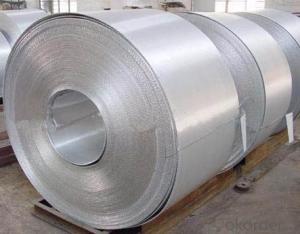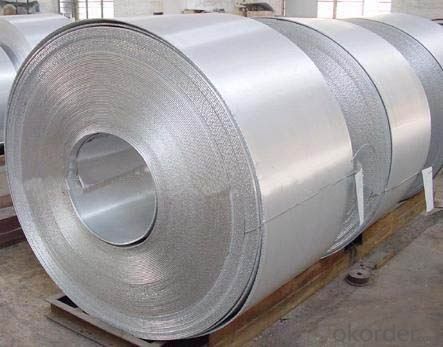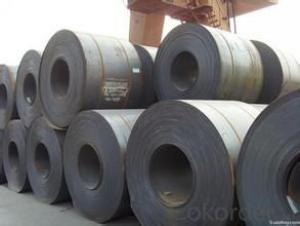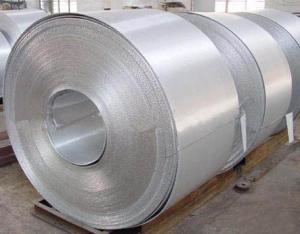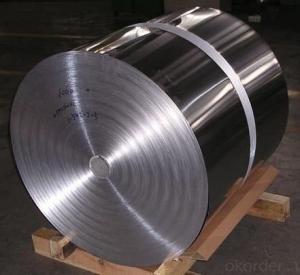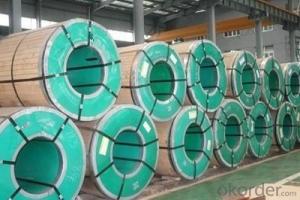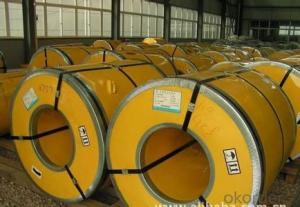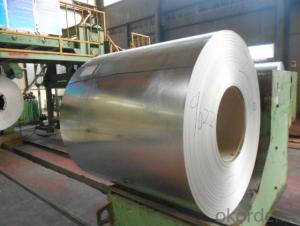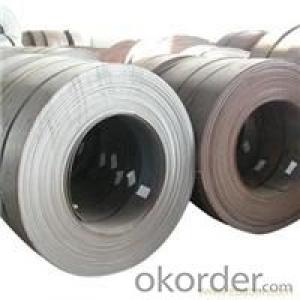Galvalume steel coil with high quality e GL AZ60G-275G Anit-finger or oiled surface
- Loading Port:
- Shanghai
- Payment Terms:
- TT OR LC
- Min Order Qty:
- 25 m.t.
- Supply Capability:
- 100000 m.t./month
OKorder Service Pledge
OKorder Financial Service
You Might Also Like
Quick Details
| Standard: | ASTM, DIN, GB, JIS | Thickness: | 0.3-2.5mm | Place of Origin: | China (Mainland) |
| Brand Name: | CNBM | Type: | Steel Coil | Technique: | Cold Rolled |
| Surface Treatment: | Galvanized | Width: | 914-1250mm | Length: | customized |
Packaging & Delivery
| Packaging Details: | seaworthy packing |
| Delivery Detail: | 20~40 days after receiving desposit |
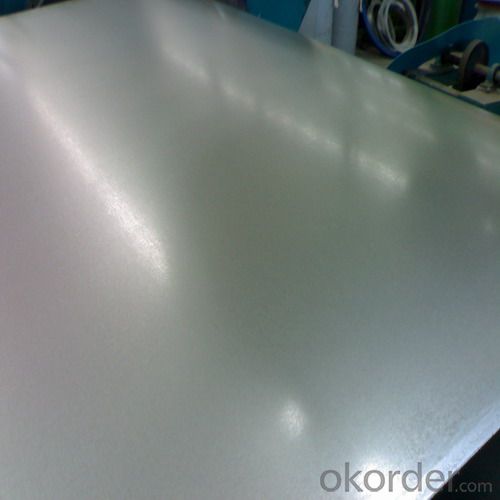
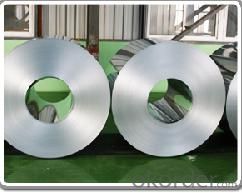
Specifications
galvalume coil with high quality
Thickness:0.3-2.5mm
Width:914-1250mm
AZ50~AZ150
galvalume coil with high quality
(1). Quality Standard: ASTM A792 CS-B SGLCC JIS G3321
(2). Thickness: 0.3-2.5mm
(3). Width: 914-1250mm
(4)Coil ID:508mm/610mm
(5). Coil Weight: 3~15MT
(6)Aluminium zinc layer:AZ50~AZ150G/M²
(7)Surface treatment:passivation treatment,oiling,anti-fingerprint treatment
(8)Packaging:seaworthy packing
- Q: What are the common methods of preserving steel coils?
- Some common methods of preserving steel coils include applying protective coatings, such as oil or paint, to prevent corrosion and rust formation. Another method is using VCI (Vapor Corrosion Inhibitor) paper or film, which releases chemicals that prevent oxidation. Additionally, steel coils can be stored in climate-controlled environments or wrapped in moisture-resistant materials to minimize exposure to moisture and humidity, which can accelerate corrosion.
- Q: What are the different types of steel coil finishing machines?
- There exists a variety of steel coil finishing machines, each designed to accomplish specific tasks and attain desired outcomes. Some commonly encountered types are as follows: 1. Slitting Machines: These machines are employed to divide large steel coils into narrower strips of desired widths. They comprise a set of circular blades that cut through the coil as it progresses through the machine, resulting in multiple smaller coils or strips. 2. Cut-to-Length Machines: These machines are utilized to cut steel coils into specific lengths. They can be programmed to execute precise cuts at predetermined lengths, thereby ensuring accuracy and consistency. 3. Recoiling Machines: Recoiling machines are deployed to rewind steel coils into tightly wound, compact rolls. They are typically used to create smaller coils from larger ones or to recondition coils that have become loose or damaged. 4. Edging Machines: Edging machines serve the purpose of removing excess material from the edges of steel coils, thereby enhancing their overall appearance and ensuring uniform width throughout the coil. 5. Coating Machines: These machines are utilized to apply diverse coatings or finishes to the surface of steel coils, such as paint, galvanized coatings, or protective films. They often incorporate drying or curing systems to guarantee proper adhesion and durability of the applied coatings. 6. Packaging Machines: Packaging machines are employed to wrap or package steel coils for transportation or storage. They can envelop the coils in protective materials, such as plastic or paper, and secure them using strapping or other fastening methods. 7. Inspection Machines: These machines are used to scrutinize the quality and integrity of steel coils. They have the capability to detect defects, such as cracks, scratches, or surface irregularities, and provide feedback for the purpose of quality control. These examples merely scratch the surface of the diverse array of steel coil finishing machines available. Each machine serves a specific role in the steel coil finishing process, guaranteeing that the final product meets the desired specifications and quality standards.
- Q: i wanna know all the similarities between iron and steel
- Steel is an iron alloy which contains between 0.2 percent and 2.0% carbon. Modern steels nearly always contain 0.5% - 1% manganese as well. (though technically the manganese doesn't need to be present for it to be considered steel.) Above 2.1% is usually called cast iron. Cast iron is brittle, but has a lower melting point than steel. Below 0.2% percent carbon is considered commercially pure iron. Pure iron is soft and malleable like copper, but it has low strength. Adding small amounts of carbon increases it's strength dramatically.
- Q: Is sterling silver better than surgical steel as far as being hypoallergic in earrings? If I have a choice which should I get? Thanks!
- Surgical okorder /
- Q: What are the main steel coil producing countries?
- The main steel coil producing countries are China, Japan, India, the United States, and Russia.
- Q: How are steel coils used in the production of shipbuilding materials?
- Steel coils are used in the production of shipbuilding materials as they are typically cut and shaped into plates, sheets, or beams that are then used to construct various components of a ship's structure such as the hull, decks, and bulkheads. The coils provide a reliable and durable base material that can withstand the harsh marine environment and ensure the structural integrity and strength of the ship.
- Q: bullets are normally made out of lead...are there bullets that are completely steel?? (not plated)
- They will both knock it over, but it depends on how the bullets hit the block. If the steel bullet hits the block at any kind of an angle, it will knock it over because it will enter the block cross grain. If it hits it straight on, it will not have as much resistance as it goes with the grain of the wood. The rubber bullet will have more resistance because it does not pierce the block. The force from the rubber bullet would be the same no matter what angle it comes from.
- Q: How are steel coils used in the production of pipes and tubes?
- Steel coils are used in the production of pipes and tubes by being fed into a pipe or tube mill, where they are unraveled, formed, and welded together to create the desired size and shape of the pipe or tube.
- Q: How do steel coils perform in corrosive environments?
- Steel coils perform well in corrosive environments due to their inherent resistance to corrosion. The protective layer of oxide on the surface of steel, along with the addition of corrosion-resistant coatings, helps prevent the coils from rusting or corroding when exposed to moisture or chemicals. This makes steel coils ideal for various applications in corrosive environments, such as transportation, construction, and manufacturing industries.
- Q: How are steel coils weighed?
- Steel coils are usually weighed using industrial scales or weighing machines. These scales are specifically designed to handle the heavy weight of steel coils and provide accurate measurements. The coils are placed on the scale, and the weight is determined based on the pressure exerted on the scale's sensors.
Send your message to us
Galvalume steel coil with high quality e GL AZ60G-275G Anit-finger or oiled surface
- Loading Port:
- Shanghai
- Payment Terms:
- TT OR LC
- Min Order Qty:
- 25 m.t.
- Supply Capability:
- 100000 m.t./month
OKorder Service Pledge
OKorder Financial Service
Similar products
Hot products
Hot Searches
Related keywords
